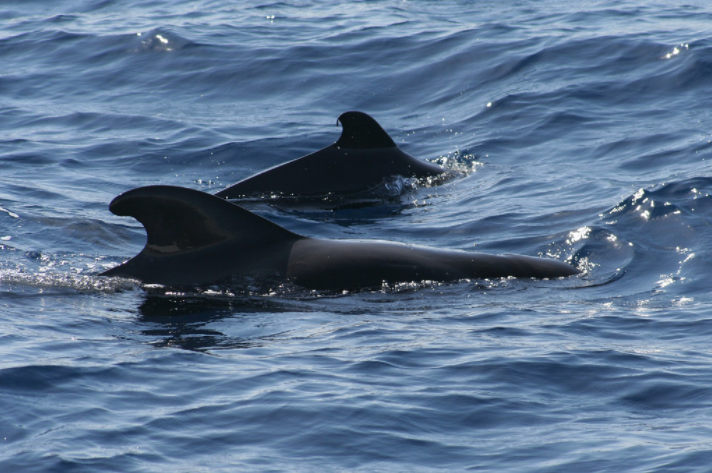Faroe Island beaches stained with dolphin blood after traditional hunt
On Sunday, September 12th, participants of the annual sea mammal hunt in the Danish territory, Faroe Islands, piled up hundreds of whale and dolphin carcasses in what is believed to be a record-breaking catch.
The whale hunt, or what the Faroese people call “the grind,” dates back thousands of years to around 800 Common Era. People who partake in this tradition locate groups, or pods, of whales and dolphins and drive them towards shore using boats. Once they reach shallow enough waters, they are slaughtered, typically with long knives.
According to the Faroese government, about 600 pilot whales are caught on average each year, while dolphins are caught less frequently. For example, in 2020 only 35 catches were recorded. However, to many locals’ shock and disappointment, this year over 1,400 whales and dolphins were killed, which is more than any past year.
Supporters of this tradition argue that whaling is an important part of their history and culture. However, animal activists disagree, saying that whaling shouldn’t be a part of anyone’s culture because of its cruel and inhumane nature. Sea Shepherd, a non-profit marine conservation organization, voiced how they’ve been opposing the practice since the early 1980’s. The organization reported that laws regulating the hunt were broken and that the scale of the catch is even being criticized by pro-whalers and Faroe Island politicians. Many of the fishermen lacked the proper license to participate, which would have provided them with the knowledge on how to kill the whales quickly, causing less pain. Pictures of the hunt clearly show pilot whales and dolphins hacked up from being run over by motorboats. Death by motorboat is a very slow, painful death. “We will continue to support their efforts to bring an end to the ongoing slaughter of pilot whales and other dolphins.”Sea Shepherd commented, assuring readers that they will continue to advocate for the abolition of the grind.
In addition to direct statements from animal activist groups, posts on social media have been circulating, showing the graphic images of the bloody mammals to bring awareness. “It made me very sad to see rows and rows of dolphins with their necks slit along the beach,” anonymous Broughton sophomore said when asked how they felt about seeing the pictures on Instagram.
It’s hard to tell if the grind will be outlawed completely, but the Faroese government will likely look into reforming it to be less barbarous. “We take this matter very seriously. Although these hunts are considered sustainable, we will be looking closely at the dolphin hunts, and what part they should play in Faroese society,” Faroese Prime Minister, á Steig Nelson, told Fox43.





